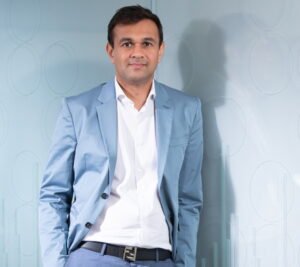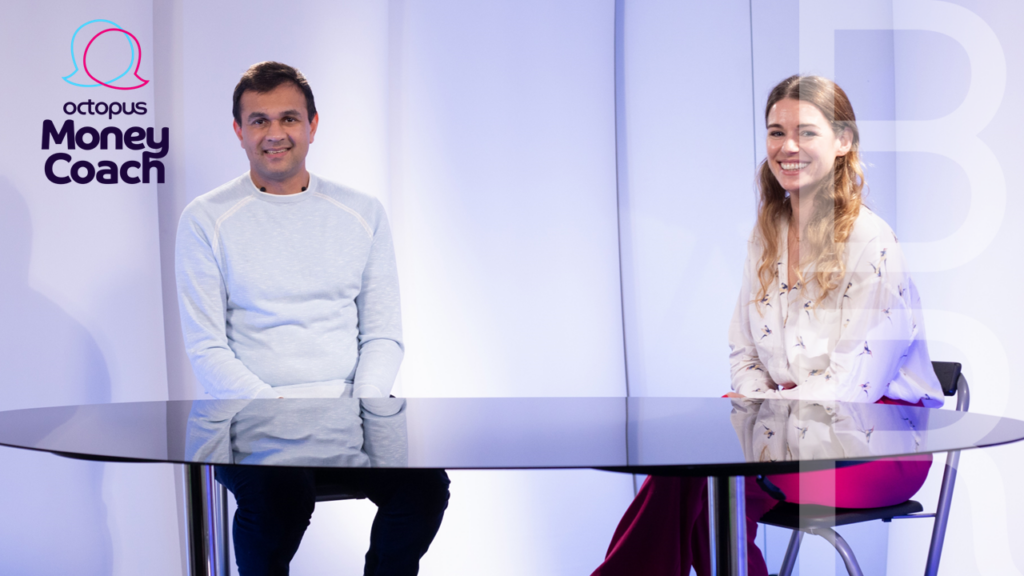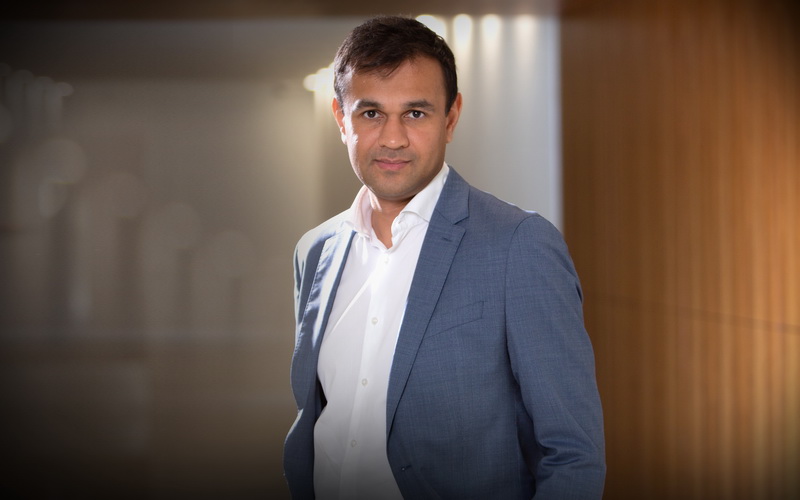What I learnt … about the value of financial coaching
Nimesh Shah has launched a personal crusade to improve the financial literacy of the 700 employees at Blick Rothenberg

This article first appeared in The Times with Nimesh interviewed by Richard Tyler
Nimesh Shah, 41, is a self-declared personal finance nerd — one of his heroes is Martin Lewis of Money Saving Expert fame. As chief executive of Blick Rothenberg — a tax, accountancy and business advisory firm — he has launched a personal crusade to improve the financial literacy of his 700 employees. Since last August they have all been able to talk to a financial coach.
Normally engagement with such company benefits is low, but 60 per cent of Blick Rothenberg’s employees have met with a coach and 40 per cent have signed up for the full 12 months.
I’ve been a personal tax advisor for 20 years
What has struck me over that time is the lack of financial education generally in the world. It’s not taught at school. We don’t get to learn about mortgages and direct debits, or even how our energy bills are calculated.
I took over the leadership of Blick Rothenberg at the height of the pandemic in August 2020. The wellbeing agenda had been completely disregarded in our profession for many years and under-invested in at Blick Rothenberg. But suddenly wellbeing was a priority.
We could have done more socials and more pizzas, but that was not thinking about the root cause of people’s mental health challenges, their anxieties outside of work.
For me the pillars of wellbeing were financial, physical and mental. I read up on financial anxiety. It’s one of the biggest causes of relationship breakdown. It’s one of the biggest causes of anxiety and stress generally in someone’s life. It got me thinking that if this is such a big cause of anxiety then it must be a big issue for our people.
The next step was to work out what can I do as an employerto take away some of that anxiety
We’re not here to solve everyone’s problems. That’s not our role, but what can we do to support people better with the challenges that they have, with their work and their lives? If we can just move the needle even 1 per cent, I’ve done some good.
At the start, I thought maybe I’ll write some blogs. I’m in this world. I follow Martin Lewis religiously. But I’m an amateur.
So I asked a few contacts to come in and talk about pensions and ISAs. Take-up was okay, but there were also ulterior motives on the side of the people I tapped up because they wanted to get to our more high-earning demographic of people.
So I called another contact at Octopus. Energy is a big part of the Octopus brand and they’re also involved in the tax-e cient investment space. They had just launched a service called Octopus Money Coach, which is now called Octopus Money. It’s an employer-funded benefit, whereby we provide everyone with their own one-to-one coach. That was exactly what I wanted. Everyone could have a very bespoke, unique experience to talk about money, which is a very private subject. It’s not one that you want to necessarily open up and talk about internally with a colleague or even your line manager or to HR.
My peers said: “You’re a bunch of accountants. Surely you’re pretty good with money as well”. But you’d be surprised how many accountants aren’t great with their money. It is the cobbler’s shoes analogy. Accountants may feel even more embarrassed that they’re not great with their money. We launched it as a completely employer-funded benefit for 12 months We also said do this on our time; you can involve your partner, spouse, cousin, whoever it is that is part of your inner circle for wealth and family and finance.
I sent an email around on a Tuesday morning and I’ve never had so many thank yous from people straight away. And the engagement thereafter has been brilliant. At the end of May we had 415 employees that connected with Octopus Money for a free initial session — I say it’s free, because Octopus don’t charge us for doing the first session.
Following that first session, you then have the option as an employee to sign up to a full-year subscription and of the 415 people who did the initial session, 274 people, which is over 40 per cent of our workforce, signed up to do a full 12 months of financial coaching.
It seems to be quite an even split between the fee earning and non-fee earning side of our business. I was surprised at the senior people in our firm that have engaged with it. These are people earning six figures plus, who I wouldn’t normally think would have engaged in financial coaching. Most of them are partners. Yet they have come to me and said I’ve got a lot out of my financial coach and my pension planning.
For example I had breakfast with a partner in our audit team just the other week. I’ve got a good relationship with him. I said I was surprised that you’ve gained so much from the pension planning and I had presumed that it was something that he would have known about?
He said he did know of it but hadn’t really started putting into his pension early on in his career because he had children very early on, and then expenses in the house. He’s in his 50s, thinking about his retirement and he said he had now really changed his outlook on how much he needs to save into his pension.
It just brought it home that the benefit has really touched a wide demographic of people in the firm and the engagement stats back that up.
Stepping back, what are we actually gaining from this?
It was always about the wellbeing of our people, the engagement and retention element, the recruitment element as well, but some of that stu” is really unmeasurable.
Accountants like the phrase: what’s the return on investment? I wasn’t able to give my chief financial o cer the numbers and this is not a cheap thing to do. It is a tax-free benefit and what Octopus Money were able to illustrate was that when they sampled this service with other businesses, they saw an uptick in employees’ salary sacrifice pensions. There is a national insurance saving for both the employee and the employer with those contributions. So the sell from Octopus is that the majority of the cost we should make up through the [employer’s] National Insurance saving that we’ll make through additional pension contributions from our people through salary sacrifice.
We also recognise that our only asset here is people and anything we can do to support and enhance their experience in work, and outside of work, is to the benefit then of our business and the growth of our business.
We’d given record pay increases just before launching Octopus Money, so it wasn’t that we were doing this in lieu of salary increases. And if I manage to save some of our employees an additional 10 per cent over their lifetime, compounded until their retirement, that is worth much more than a 5 to 10 per cent pay increase in one year. To me, that is the value of financial coaching.
Nimesh Shah was talking to Richard Tyler, editor of the Times Enterprise Network
Blick Rothenberg & Octopus MoneyCoach financial coaching
Blick Rothenberg is working with Octopus MoneyCoach to offer a financial coach for every employee.
Octopus MoneyCoach is an award-winning financial planning company, making it easy for anyone to get help building the best possible financial future. Every Blick Rothenberg employee gets access to 12 months of financial coaching, paid for by the firm.
Nimesh Shah, Blick Rothenberg CEO sat down with Neasa McNulty, Employer Partnerships Director at Octopus MoneyCoach to talk about the initiative and the response from people to the coaching.

Contact Nimesh

You may also be interested in

Ele Theochari has been appointed as Vice President of The Association of Taxation Technicians

Retailers Both Online and High Street Struggle Amid Rising Staffing Costs













